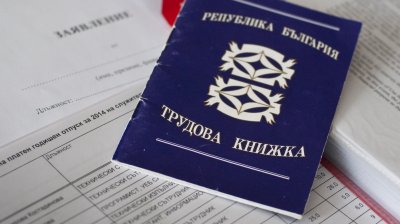EMPLOYMENT OF A FOREIGN NATIONAL FROM A NON-EU COUNTRY
Hiring a non-EU foreign national
Lack of personnel or why are we facing the challenge of hiring a non-EU foreign national?

non-EU foreign national
What does a non-EU foreign national have to do with this article? Lately, I have been increasingly encountering the argument that “there are no qualified workers in the market,” “there is a lack of quality employees,” “people lack qualifications,” and so on. Employers often solve this staffing issue by hiring a non-EU foreign national.
I am not going to advise the typical employer to invest a bit more in their employees (i.e., in team building) to improve the situation. This article will be about a different topic, even though it touches on the same problem – the lack of personnel.
So, let’s consider a scenario where an employer is struggling to build a quality team.
- Firstly, the Bulgarian market (which is already quite limited) cannot meet the employer’s needs.
- Secondly, for European-qualified personnel, we are not an attractive target—wages in Bulgaria are low, and that is a fact!
- Thirdly, we do not want to compromise on quality….
How can we overcome these obstacles as employers? I can think of two options:
- We move our business abroad, where the environment is more favorable for its development. However, I won’t be able to help you there.
- We bring in a worker from a non-EU country who possesses the required skills for the job. This second option will be the focus of this article, and I hope you will find it useful.
You should be prepared for a lengthy, bureaucratic, and complex procedure. Your documents will go through three institutions: the Employment Agency, the Migration Directorate of the Ministry of Interior, and the Labour Inspectorate. Additionally, you will need to correspond adequately with the National Revenue Agency (NRA) and the National Social Security Institute (NSSI). However, the results are worth the effort.
I advise you to set aside at least six months as a time buffer. There are approximately three ways to bring in foreign workers.
- Hire someone on a fixed-term employment contract for up to one year. You can renew this contract for up to three years.
- Hire seasonal workers and employees.
- Accept seconded personnel—citizens of non-EU countries in Bulgaria.
To avoid making this article excessively long, I will only cover the main aspects of these three options without going into technical details.
Fixed-term employment contract for up to one year for a non-EU foreign national

non-EU foreign national
The procedure is as follows. You post a job advertisement at the employment office. If you have already identified your non-EU foreign candidate, the job posting should match their professional qualifications and skills. The goal of this ad is to prove that there is no worker on the Bulgarian market who meets your hiring criteria. In addition to the employment office, your advertisement should be published on at least one other job search website, such as jobs.bg, rabota.bg, zaplata.bg.
If, after 2-3 weeks, no Bulgarian or European candidate applies, the law allows you to seek a non-EU foreign national. In this case, the Employment Office issues an opinion and submits it to the Employment Agency (EA). The EA must grant a preliminary permit for hiring your non-EU candidate. Once approved, you can prepare the necessary documents and apply for a Single Work Permit for the employee.
Single Work Permit for a non-EU foreign national
To obtain a Single Work Permit, you must submit:
- A signed employment contract (notarized for both signatures and content before employment starts).
- A Visa D (work permit visa).
- A rental agreement or employer-provided accommodation for the non-EU foreign national.
- A Residence Permit issued by the Ministry of Interior.
Among all these documents, the employment contract creates the most challenges. It must:
- Be fixed-term for up to one year;
- Require a tax ID from the National Revenue Agency (as the employee will not have a Bulgarian personal ID number initially);
- Not specify a start date, as no authority has approved the employment yet.
Once the employment contract is declared, step two is securing approval from the Employment Agency (EA). If the EA approves, the worker will receive a Visa D, residence permit, and personal ID number (LNC) from the Ministry of Interior.
For full details, visit the Employment Agency’s website here.

